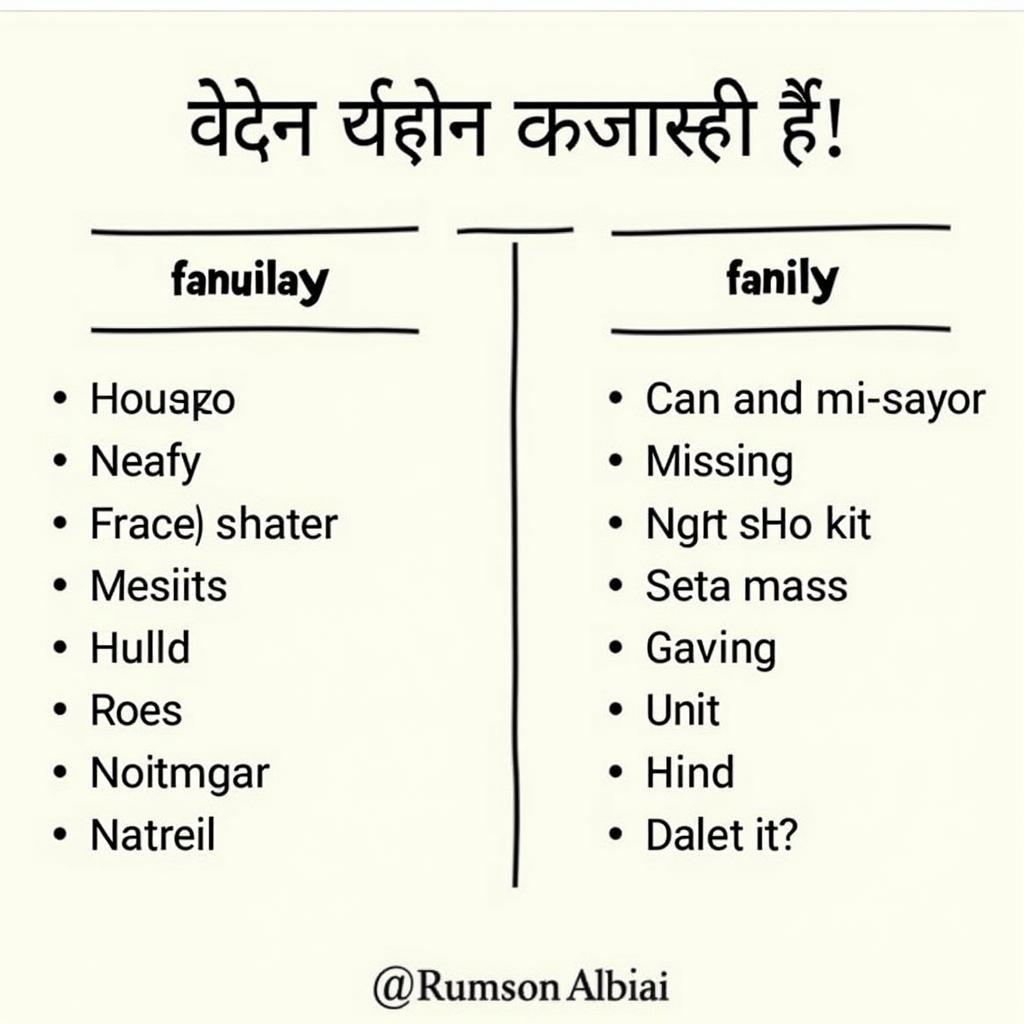“I missed you too” is a common phrase expressing reciprocal feelings of longing. But what does it truly mean, and how is this sentiment conveyed in Hindi? This article delves into the nuances of expressing “I missed you too” in Hindi, exploring its cultural context and providing various ways to articulate this heartfelt sentiment. We’ll look at the literal translations and the more nuanced, culturally relevant expressions used in everyday conversations.
Expressing “I Missed You Too” in Hindi: Beyond Literal Translations
Simply translating “I missed you too” word-for-word into Hindi doesn’t always capture the emotional depth of the phrase. While a direct translation might be grammatically correct, it can sometimes sound unnatural or even impersonal. The beauty of the Hindi language lies in its ability to convey emotions with subtle variations and culturally specific expressions.
Common Hindi Phrases for “I Missed You Too”
Here are some common ways to express “I missed you too” in Hindi, moving beyond literal translations and embracing the richness of the language:
- “Mujhe bhi tumhari yaad aa rahi thi” (मुझे भी तुम्हारी याद आ रही थी): This translates to “I was also missing you.” It’s a straightforward and commonly used phrase suitable for most situations.
- “Main bhi tumhe miss kar raha/rahi thi” (मैं भी तुम्हे मिस कर रहा/रही थी): This uses the English word “miss” incorporated into Hindi grammar. It’s a more modern and informal way of expressing the sentiment, especially popular among younger generations.
- “Mujhe bhi tumhari kami mehsoos ho rahi thi” (मुझे भी तुम्हारी कमी महसूस हो रही थी): This translates to “I was also feeling your absence.” It conveys a deeper sense of longing and the impact of the person’s absence.
- “Tumhare bina bhi main udaas tha/thi” (तुम्हारे बिना भी मैं उदास था/थी): This means “I was also sad without you,” expressing sadness due to the person’s absence. It’s a more emotionally charged expression.
Choosing the Right Phrase
The best way to express “I missed you too” in Hindi depends on the context and your relationship with the person.  Different Ways to Say I Miss You in Hindi Consider the level of formality and the depth of emotion you want to convey. For example, speaking to a close friend allows for more informal and affectionate language than speaking to an elder or someone you don’t know well. You might find articles on i miss you in hindi helpful for further exploration.
Different Ways to Say I Miss You in Hindi Consider the level of formality and the depth of emotion you want to convey. For example, speaking to a close friend allows for more informal and affectionate language than speaking to an elder or someone you don’t know well. You might find articles on i miss you in hindi helpful for further exploration.
The Cultural Context of Missing Someone in Hindi
In Hindi, expressing emotions is often interwoven with cultural nuances. Respect, formality, and the nature of relationships play a significant role in how feelings are expressed. hidden love meaning in hindi can provide further insight into the subtle ways emotions are conveyed within Indian culture. While the core emotion of missing someone remains universal, its expression in Hindi reflects the cultural values of close-knit families and strong social bonds.
Expressing Longing and Affection
Hindi has a rich vocabulary for expressing longing and affection, often drawing on metaphors and imagery. These expressions go beyond the simple act of missing someone and delve into the emotional impact of their absence. For those interested in exploring expressions of regret, regret quotes in hindi can offer valuable insights.
Beyond “I Missed You Too”: Exploring Deeper Emotions
Sometimes, “I missed you too” is just the beginning of a conversation. It opens the door to expressing deeper emotions and strengthening the bond between two people. bad shayari in hindi can interestingly contrast with expressions of love and longing.
Sharing Experiences and Feelings
After expressing “I missed you too,” consider sharing specific experiences or feelings that arose during the time apart. This can deepen the connection and make the reunion even more meaningful. For those looking for heartfelt expressions of longing, heart touching miss you shayari in hindi can be a rich source of inspiration.
Conclusion
Understanding the meaning of “I missed you too” in Hindi requires more than a simple translation. It involves appreciating the cultural nuances and choosing the expression that best conveys your emotions. By exploring the various phrases and their underlying meanings, you can express this sentiment with authenticity and depth, strengthening your connections with those you care about. “I missed you too” transcends language barriers and speaks to the universal human experience of longing and connection.
FAQ
- What is the most common way to say “I missed you too” in Hindi?
- Is it appropriate to use English words like “miss” in Hindi conversations?
- How does cultural context influence expressing emotions in Hindi?
- What are some other ways to express longing and affection in Hindi?
- How can I make my expression of missing someone more meaningful?
Common Situations Where “I Missed You Too” Is Used:
- After a long absence: When reuniting with family or friends after a period of separation.
- In romantic relationships: Expressing mutual feelings of longing after being apart.
- In long-distance friendships: Maintaining emotional connection despite physical distance.
- With family members living abroad: Bridging the gap created by geographical separation.
Related Topics to Explore:
- The Significance of Shayari in Expressing Emotions
- Non-Verbal Communication in Hindi Culture
- The Role of Family in Indian Society
- Long-Distance Relationships and Communication
For further assistance, please contact us at Contact@ViperCircle.com or visit our office at G-5, लोअर परेल, सेनापति बापट मार्ग, मुंबई, महाराष्ट्र – 400013, भारत।. We offer 24/7 customer support.